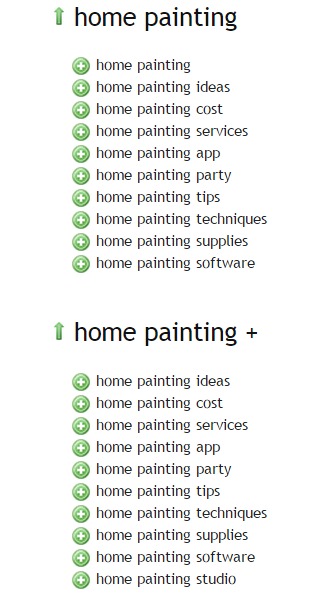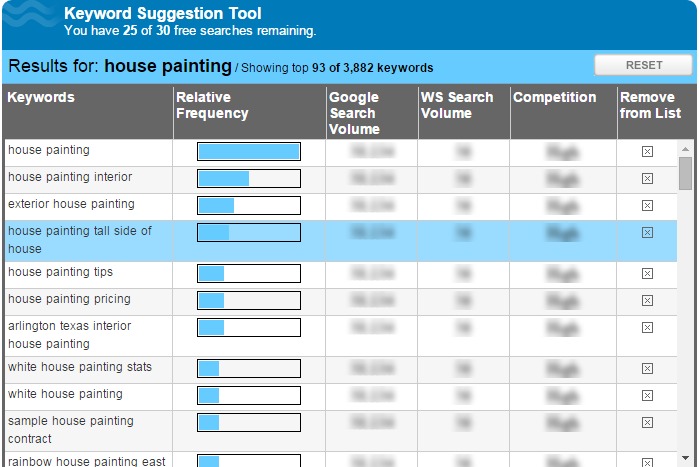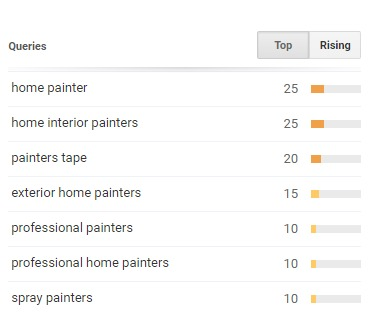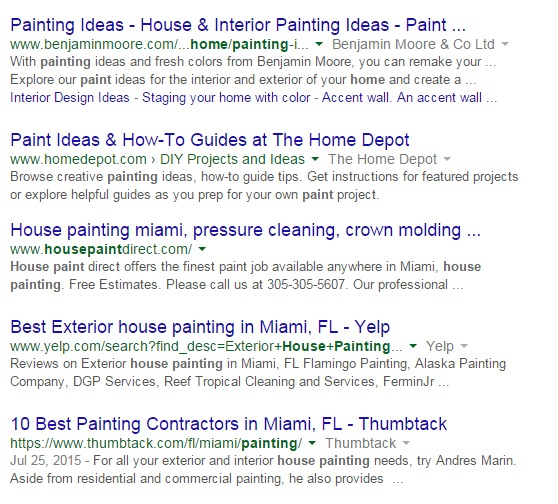[display-name-category]
[post_author]
Without a doubt, keywords are the most important element in your SEO strategy and your whole search engine marketing campaign.
You will use them to classify your business, target your desired audience, and dictate what the content of your website will be.
The way SEOs have used keywords to obtain a higher position in the SERPs has changed a lot over the years as search engines have evolved to present the best results to the final user. But some old-school (black-hat) tactics can still be seen in some websites, the most obvious seen when reviewing titles and meta descriptions, look like this one:

This is an example of keyword stuffing. It was used to trick search engines to rank for as many keywords and variations as possible by “stuffing” the page title, meta description and page content with each and every single keyword you wanted to rank for, regardless if it made sense or not, which led to users not able to find a reliable search result.
To avoid making this and other mistakes when implementing your keyword strategy, I have gathered some recommendations that will put you right back on track.
The Big Question: How Many Keywords Should I Use?
You may stumble upon comments from SEOs wondering how much on-page keywords to use and how much keyword repetition is needed to help you improve your organic positioning in search. These people are trying to optimize for search engines instead of optimizing for users, this could easily lead to keyword stuffing practices.
Yes, you should use the keyword you are targeting in your page, but focusing on the searchers you are trying to attract to your page. Let me share with you a few rules of thumb when placing them.
- Mention your keyword in the page title: This is what will tell searchers and search engines what your page is about.
- Place it in the main headline: You want your users to find a matching topic between the search snippet and your landing page.
- Don’t forget your meta description: It will not boost your rankings in search, but we are targeting users here and a good description can help your click-through rate.
- Repeat it at least two or three times in the page content: You are still going to use it as part of the content, a reference to the topic (keyword) of your page will make it have more sense.
- Implement your keywords in your images: Make sure the ALT text and the filename of your image include them.
- Don’t go overboard: If you feel you repeated a keyword too many times, you probably have. Read your text and remove the ones you don’t need.
In the end, you can add as many keywords as you need to solve the purpose and intent of your page but make sure they don’t look like a pile of random words and that you can read them easily. If you can read your text out loud without feeling silly, you’re good to go.
Now, How Do I Target My SEO Keywords?
1) Start by Doing Keyword Research Right
Find all the keywords that are relevant for you, not just pick the ones you’ll stuff in your site but get the search intent after them. This will give you insights on what types of problems your website can solve.
There are plenty of tools online to get you started, just keep in mind that different tools will get you different results.
Übersuggest and WordStream have helpful keyword tools to find new search terms and sort them by popularity.
Example: Say you have a landing page for your residential painting service. When you try to research new keywords for home painters and home painting you get the following:
Übersuggest Keyword Tool

Wordstream Keyword Tool

Personally, I prefer the Google Trends explore tool mostly because of the way its insights are presented, they are broken down into interest over time, regional interest and related searches. This way, I can identify trends for seasonal terms, target geo-locations based on search term popularity and outline a more solid keyword strategy.

You can simply stuff all these keywords in the title, meta description and content of your page as shown before, but this will just make the search snippet harder for your users to read and, let’s be honest, a result like that will look spammy.
Instead, take a few minutes to review the SERPs, you’ll find that the search intent is not only necessary to find a home painting business but also to get information about home painting ideas.

2) List All Your Keywords and Group Them into Categories
Take your list and split them into categories, name them after the search intent. Each page in your website will have a specific purpose to serve. Make that purpose match with each keyword category.
In the previous example, we found two different search intents. If we separate them, we’ll have the following:
|
Looking for Information
|
Looking for a Business
|
3) Turn Your Keywords into Real Titles and Headlines
Highlight the intent you are solving along with the keyword in the title tag and main headline of your page.
Hit another ball on the green and add geo-targeting keywords to your service page titles for better rankings in local search.
Let see how it goes.
|
Looking for Information
|
Looking for a Business
|
4) Include Synonyms and Different Variants of Your Search Term (Not the Keyword)
Remember that search engines will be able to understand keyword variations as long as the intent stays the same. Feel free to use them as part of your page content.
Back to our example.
|
Looking for Information Painting your own house without knowing what to do could be a frustrating task. Look at a few options that will make DIY painting easy for you. |
Looking for a Business Give your whole house a new look with our premiere residential painting service. We are serving Miami and the surrounding areas. Call today. |
Real Keyword Targeting Is No Longer About Keywords but About Search Queries
You might be thinking that keywords and queries are the same things, but they are not. Keywords are the specific terms that people use in a search box and they vary depending on the words used and their arrangement, but a search query is a question made to a search engine to solve an intent.
A search query does not depend on how the words are spelled or organized, it will only change if the intent behind it does. While search engine results are based on keywords, they are also based on the intent of the search query.
Why Search Queries?
Search Engines Are Smarter
It is getting harder and harder to trick search engines to gain a better position in search results. Penalty algorithms like Google Panda started filtering and banning low-quality and non-compliant websites out of the SERPs.
Search Engines Learned
They can now find synonyms, variants, word definitions, and create associations between them.
Search Engines Understand
After trillions of searches processed by search engines, they know the relations between the search terms that people use and the intention behind it.
Stop working hard on finding shortcuts to rank better. Work hard on understanding what your audience needs and how they are searching for it so you can provide them with what they are looking for. That’s it.
Do you have any ideas about keyword research?





